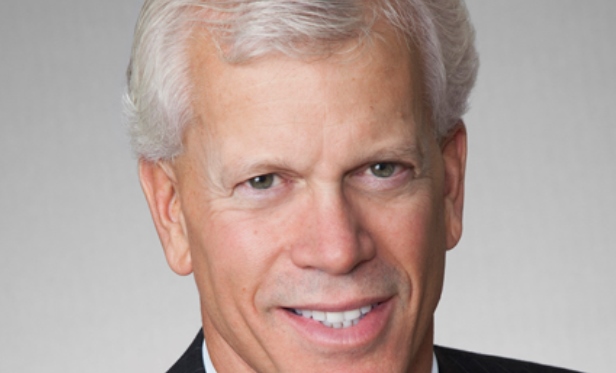 Epstein recently discussed the demand for data centers throughout Texas.
Epstein recently discussed the demand for data centers throughout Texas.
DALLAS—Marc Epstein, partner of Akin Gump Strauss Hauer and Feld LLP, recently advised IPI Data Center Partners Fund I (jointly managed by ICONIQ Capital and longtime client Iron Point Partners) in its multi-million-dollar acquisition of three data centers located in San Jose, Hillsboro, OR, and Ashburn, VA. In addition, Epstein represented the client in obtaining a credit facility for the acquisition and a revolver to be used for working capital for the business.
“As a lawyer, you have to be cognizant of much more than just real estate issues,” Epstein says. “Much more than title and survey.”
He said equally important is an understanding of the key technologies.
“What makes the data center truly unique,” he said, “is it really marries real estate with technology.”
In this exclusive, Epstein recently discussed the demand for data centers, how data center transactions differ from other assets, other issues to consider and future prospects for data centers.
GlobeSt.com: What is the attraction of data center owners/operators/investors in Texas?
Epstein: There are a number of factors that make Texas an attractive location for data centers, including a thriving economy, generous tax incentives, cheap energy prices, and a large and educated workforce. Another significant factor is that approximately 90% of Texas is powered by its own electrical grid, the Electric Reliability Council of Texas/ERCOT system.
GlobeSt.com: What makes data center deals different from other transactions for projects such as shopping centers and industrial properties?
Epstein: Two key differences between data center transactions and other real estate-based transactions are one, in most instances, the rent paid by data center tenants is based on electrical capacity rather than square footage, and two, the importance of the services the landlord provides and the quality of the data centers operations. Data center leases traditionally contain several ancillary agreements as exhibits, the most important of which is the services level agreement. Due to the operational requirements of data center equipment, the environment within a data center is closely monitored and the services level agreement will provide a very specific range for the temperature and humidity, among other conditions, within the data center. The failure of the landlord to adhere to the specific ranges set forth in the services level agreement, even for a very short duration, result in service level events that can lead to significant rent abatements or grant a right to a tenant to the termination of the entire lease.
GlobeSt.com: What are the key points to remember when working on data center deals?
Epstein: First, leasing is traditionally on power and not square footage; and second, reliability and security will be the main focus for tenants, so that should be a client's main focus. In addition, many data center clients will focus on other tenants in the building or seek to ensure that competitors cannot use the same data center.
GlobeSt.com: What issues should you be looking for when doing due diligence on this type of deal?
Epstein: In addition to standard real estate due diligence, when performing diligence for a data center, you need to keep a keen eye out for any items that would interfere with operations within the data center and risks that could put the equipment, which is millions of dollars, within a data center at risk. Gas pipelines within the property are obvious concerns, but any nearby railroads, drill sites, airports or industrial facilities that could produce significant vibrations can also interfere with the operations of a data center. In addition, to help guard against service level events, it is crucial for a data center to have a sufficient source of redundant power. Often, this will require the installation of on-site generators and other items which can carry environmental risks, including above-ground fuel storage tanks. Having the necessary permits and procedures in place to handle potential hazardous materials is critical. Further, since data centers consume a large amount of energy, it is typical for the facility to have separate agreements with local utility providers to ensure that the electricity supplied to the facility is sufficient to accommodate the overall usage of the facility. If the data center is an existing facility, then you will need to pay close attention to the facility's existing operational logs and procedures to determine if any issues exist in the facility with respect to the tenant's service level agreements.
GlobeSt.com: What is it about data centers that are attracting interest in the development and the financing/investing of these deals?
Epstein: With the continued move to a more digital/Internet-based society, greater workforce mobility, the change in consumer spending and trends, and ever-growing data consumption, data centers are at the crossroads of infrastructure and technology—it's where real property meets digital property.
GlobeSt.com: Do you expect more development of data centers in 2018?
Epstein: As our economy continues to shift towards cloud-based electronic storage, and data storage and analytics, the demand for data centers, i.e., wholesale, retail and co-location facilities, should continue to increase, and for the reasons mentioned earlier, we believe that Texas is in a great position to continue to be a leader in the field.
© Touchpoint Markets, All Rights Reserved. Request academic re-use from www.copyright.com. All other uses, submit a request to [email protected]. For more inforrmation visit Asset & Logo Licensing.







